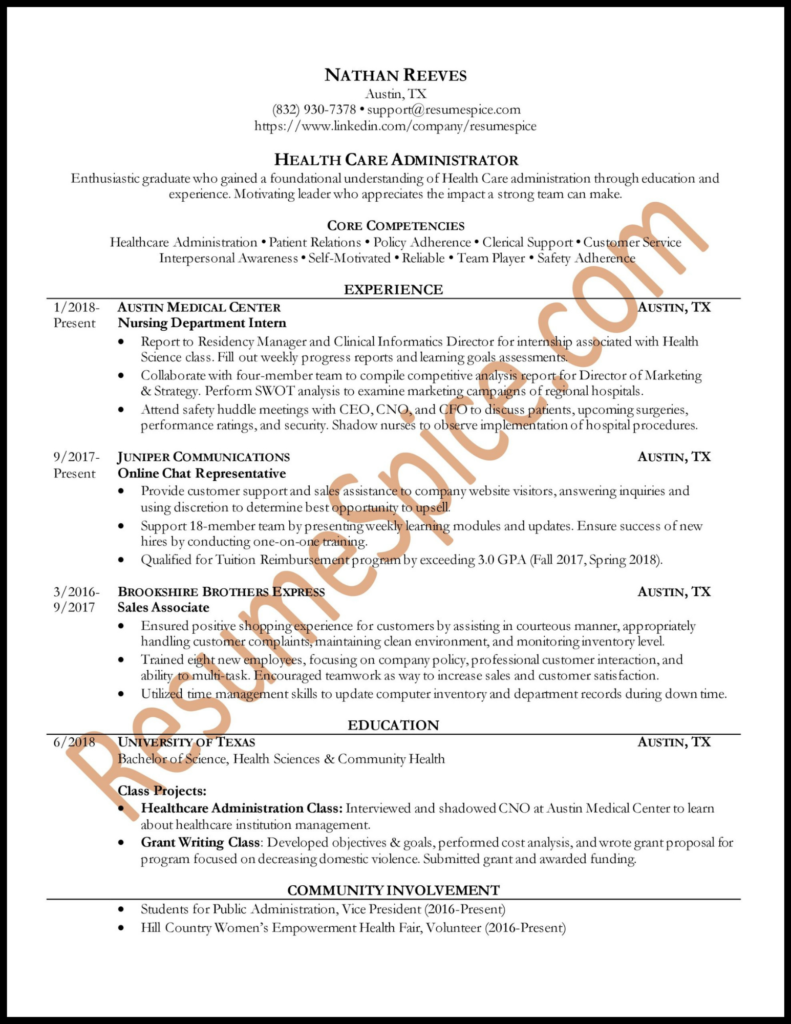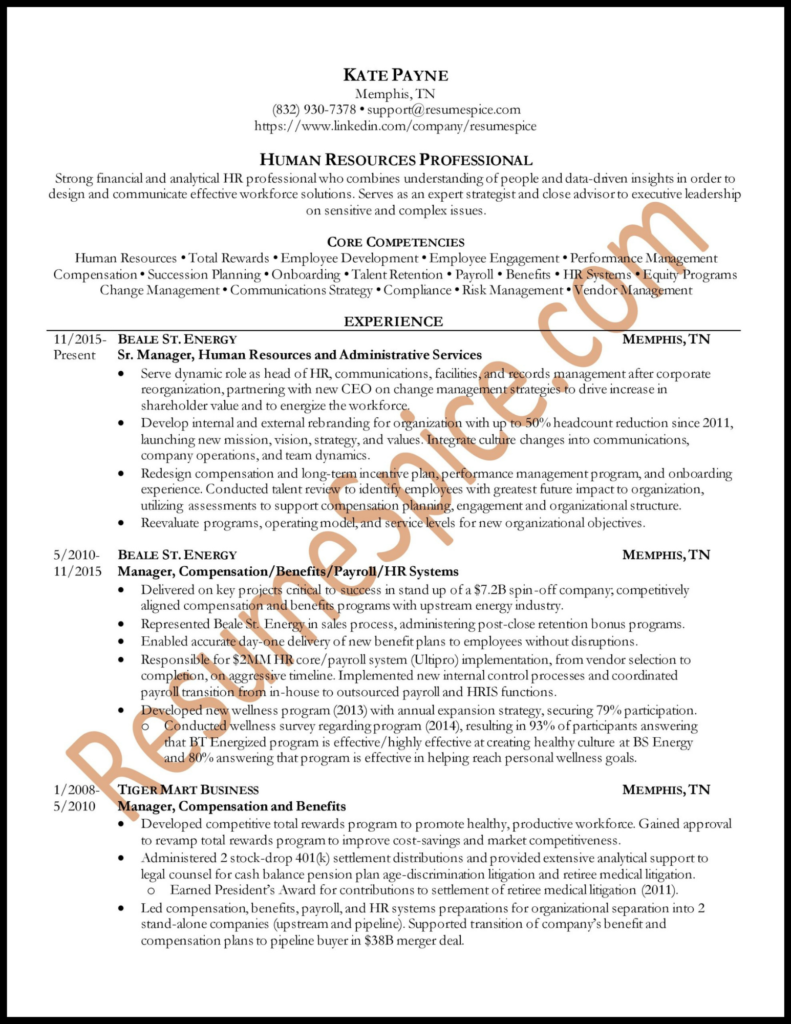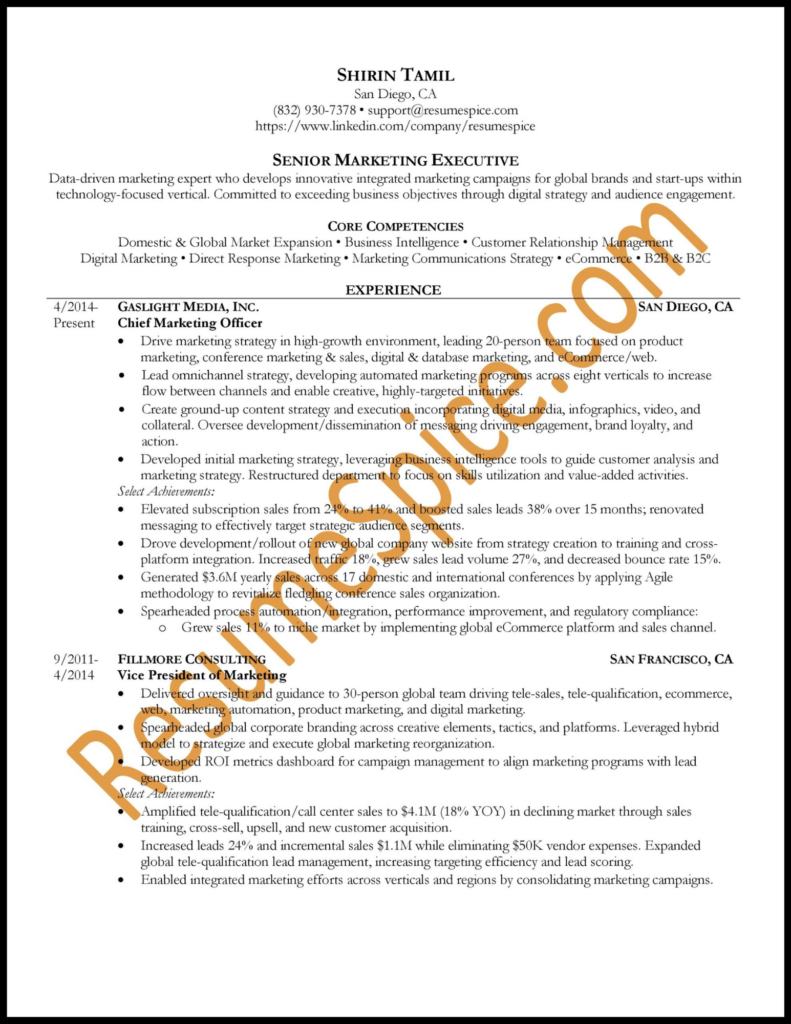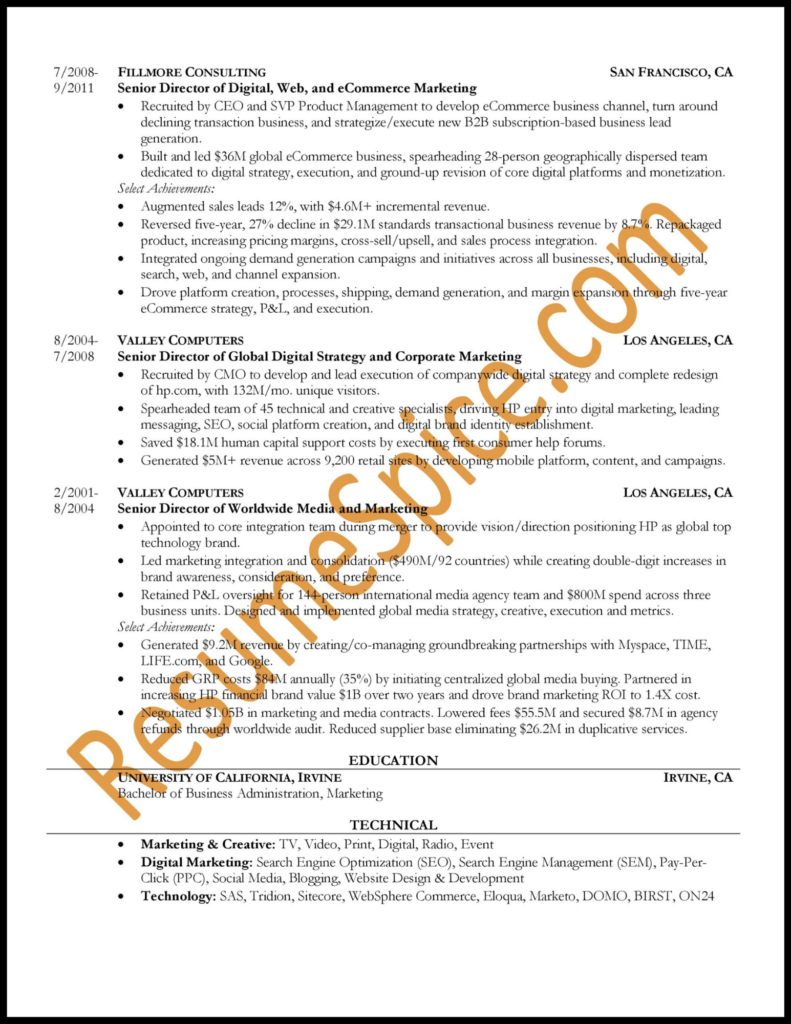“How far back should a resume go?” and “How much work history should I put on my resume?” are questions that puzzle new and experienced professionals alike.
That’s why we checked with our top resume writers here at ResumeSpice — they have years of experience and first-hand knowledge of what recruiters, hiring managers, and HR teams are really looking for when it comes to work history on a resume.
According to our team, your resume shouldn’t go back further than 15-18 years. Here’s why (and how many pages your resume should be).
How far back should a resume go?
At ResumeSpice, we recommend that your resume should only go back 15-18 years and be between one page to three pages long.
However, the length of time and pages do depend on your background and the following two factors:
- how many jobs you’ve had and
- how relevant the older jobs are to the role you're seeking.
Let’s look at the right amount of resume work history based on these two factors and your career status.
Entry-Level Resume
Recommended length: An entry-level resume should normally be one page long.
If you’re a recent graduate, include experience from your university days such as internships and club positions.
List transferable skills (skills that will transfer nicely to the job), such as:
- projects you’ve led
- presentations you’ve completed
- volunteer work you’ve performed
- problems you’ve solved
You can also go back as far as high school on your resume if your years of professional experience are a bit light.
Perhaps you’re applying to a junior marketer position, but haven’t had a full-time job yet…
You might include the results from promotional email campaigns you created for a fundraiser in high school. Be creative and show quantifiables achievements and results where you can, even in your Education section:

Mid-Level Resume
Recommended length: A resume for a mid-level professional should typically go back four to ten years and be one to two pages long.
Step away from college achievements (unless they’re significant, such as an internship with Google). Instead, include relevant accomplishments from jobs you’ve had. You can also help your resume shine by adding volunteer work, affiliations, and leadership roles.
If you’ve been with the same company for a long time, but held different positions, separate the job roles and add specific tasks such as this HR Professional resume below:


Senior Level Resume
Recommended length: As an experienced professional, it’s acceptable to go back 15-18 years on your resume. Your resume can also be up to three pages long.
For senior-level resumes, it’s only necessary to include your most recent career experience. This means that entry-level jobs and part-time work are unnecessary.
Include extensive details about recent work experiences – don’t be afraid of specifics! Make sure bullets are relevant to the job to which you’re applying. Here’s an example of a detailed, relevant resume for a senior marketing executive:


Hint: If you’re making a career change and/or you’ve had a career gap…it’s possible a position you held 20 years ago is more relevant to your new career. In this case, it’s acceptable to include this position (and related tasks/results) on your resume. Just be sure to explain the position in your cover letter.
Why shouldn’t my resume go further back?
According to ResumeSpice’s team of top resume writers, your resume shouldn’t go back further than 15-18 years because of three main reasons.
1. Irrelevant information
Your resume is valuable real estate showing employers exactly why you’re the best candidate for the job.
As such, it should be filled with information that pertains to the position to which you’re applying. If you include every job you’ve held over the past 25 years (including that dog walking job in high school), your resume will likely be cluttered with information that doesn’t matter to the employer.
To ensure relevant content, carefully review the job description. Look for exact keywords and qualifications. Make a list of the related jobs you’ve had that match the description. Insert these positions and relevant skills/work history in your resume.
2. Age discrimination
Like it or not, age discrimination is still prevalent in hiring. This is where a hiring manager makes a decision to not move forward with your application because they see you’ve been in the workforce a long time.
They make assumptions that your salary ask will be too high or that you’re not tech-savvy. Whatever the case, including experience further back than 18 years (unless properly explained) on your resume can create unnecessary problems. As such, limit your work history.
3. Length
The right resume length does depend on your experience, but a resume between 1-3 pages is acceptable.
If you include all your work history, however, you’ll be looking at a much longer document. Considering that a recruiter or hiring manager only skims each resume, you’ll decrease your chances of making it into the “potential interview” pile.
Key takeaway…
Keep your resume short and sweet with only the most relevant work history. If you want to highlight certain experiences from years ago, summarize the skills you gained during that time in your resume’s qualification summary.
Need additional help crafting the perfect resume? Check out our services at ResumeSpice. With our team, you’ll get a resume that has been developed by recruiters and hiring managers (we know what employers want!). We can help you find a great new job, faster, as a result. If you’re ready to learn more, call 832.930.7378 or contact us online.






